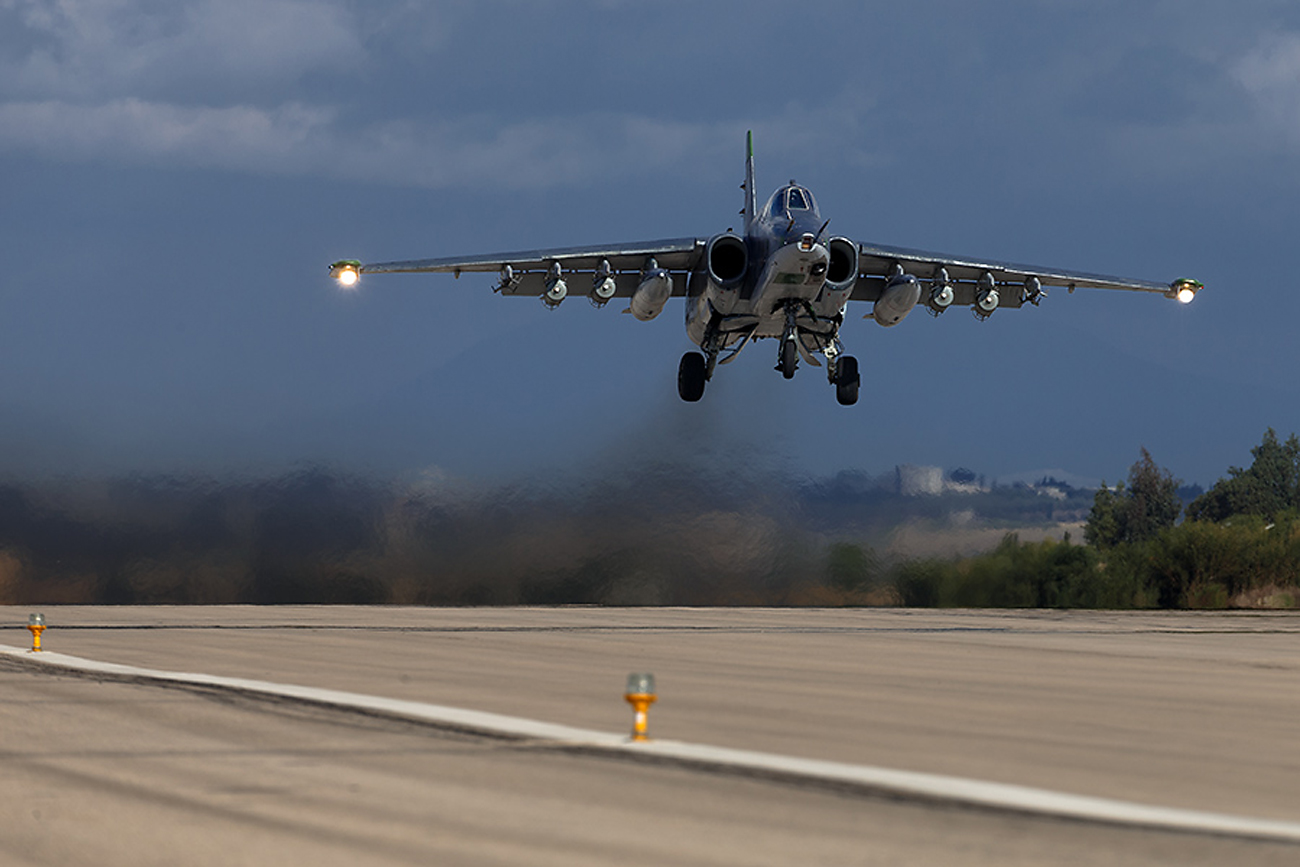A ‘grown-up’ China looks to enter the Syrian equation

A Syrian government army soldier near the city of Palmyra, March 24, 2016.
Valery Sharifulin/TASSChina and Syria recently discussed the possibility of Chinese military instructors training army personnel in Damascus.
On Aug. 16, Guan Youfei, director of the Office for International Military Cooperation of China's Central Military Commission, said the two sides had “reached a consensus” on the Chinese military providing humanitarian aid to Syria.
However, the focus of attention turned on his accompanying remark that Beijing is seeking closer military ties with Damascus.
These developments come after ongoing speculation that dozens of Chinese military instructors were sent to Syria in 2015. The allegations made by certain sections of the media were never proved, however.
However, recent developments support the conclusion by Reuter’s that lately China has been trying to get more involved, including sending envoys to help push for a diplomatic resolution to the violence there and hosting Syrian government and opposition figures.
Can a solid rationale be detected in these “unknown reasons” for the higher level of Chinese involvement in the Middle Eastern quagmire?
Make money, not war
Recent military setbacks and retreats by ISIS military formations in Syria have raised the prospects of Syrian leader Bashar al-Assad presiding over the final defeat of his numerous opponents. Beijing must have sensed the soon opening windows of business opportunities.
Earlier this year, the emboldened ruler of Damascus bluntly encouraged Iran, China and Russia to continue rendering support to his regime by promising to offer the trio preferential treatment when “reconstruction” of the ravaged country comes on top of the domestic agenda.
Beijing must have gambled on netting lucrative construction contracts in Syria and providing building materials as well as collateral services, thus ensuring a solid fabric to bilateral relations.
Gleb Ivashentsov, former Russian ambassador to South Korea and now member of the Russian International Affairs Council, shares this view but says that geopolitical considerations also come into play.
“For Beijing the invigorated cooperation with Damascus definitely serves the purpose of reserving a privileged place in post-war Syria,” said Ivashentsov.
“Trade and economic cooperation is at the back of Beijing’s mind. However, this is also a signal to the United States that China is becoming more assertive in pursuing foreign policy goals. Moreover, I cannot exclude that this is sort of an asymmetrical response to the deployment of U.S. anti-missile systems in South Korea.”
It sure looks like China is not going to forfeit the “dividend of peace” once Syria is stabilized and the rebels come to terms with Assad’s regime by striking a durable and mutually acceptable deal.
New security provider on the block
However, China’s more assertive behavior in world affairs and readiness to enter hot spots cannot be attributed solely to the need to tap foreign markets, shower them with consumer goods and/or extract and import their mineral resources.
It’s more than that. It is about what Xi Jinping termed as the new diplomacy of a super power “with a Chinese accent,” said Alexander Lomanov, a professor at the Russian Academy of Sciences’ Institute of Far Eastern Studies.
“It is by all means a revision of Deng Xiaoping’s legacy epitomized in his guarded instructions: Never take the lead, never reveal your true potential, never overstretch your abilities,” said Lomanov.
“It was said back in 1992, and was derived from the lessons of the collapse of the Soviet Union. But a quarter of century has elapsed since then. China has changed and is transcending the boundaries is has set for itself.”
He adds that China is trying to assert itself on the global stage. “If you scan Chinese blogs, you find remarkable twists to the news of a possible upgrade of military cooperation with Syria. ‘Joining the game of geopolitical football in the second half was a standard tradition with us,’ asserts one of the bloggers. Now that ‘we have grown up, the time has come to enter the game from the start,’” said Lomanov.
Growing up to save the world
Anyway, it should be put on record: The above statements are a clear hint at the possibility of China abandoning its overcautious stance on foreign policy engagement.
If things do develop along these lines, China may soon try on the role of a global security provider. The Middle East might be an acceptable testing ground.
Is Beijing mature enough to carry this burden? Probably, yes. In any case, the Chinese no longer have an inferiority complex. They claim to “have grown up.”
Special section: Troika Report>>>
Persian pivot: What Russia’s new closeness with Iran means>>>
The opinion of the writer may not necessarily reflect the position of RBTH or its staff.
Subscribe and get RBTH best stories every Wednesday
All rights reserved by Rossiyskaya Gazeta.
Subscribe
to our newsletter!
Get the week's best stories straight to your inbox
